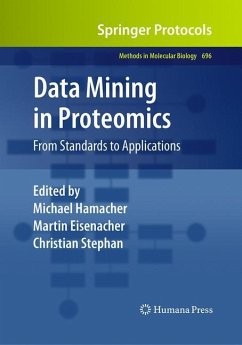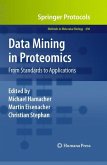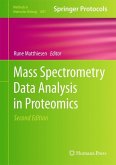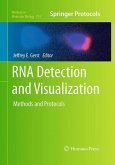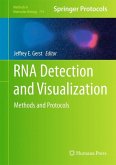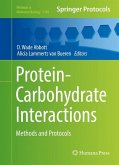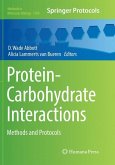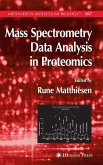Through the rapid development of proteomics methods and technologies, an enormous amount of data was created, leading to a wide-spread rethinking of strategy design and data interpretation. In Data Mining in Proteomics: From Standards to Applications, experts in the field present these new insights within the proteomics community, taking the historical evolution as well as the most important international standardization projects into account. Along with basic and sophisticated overviews of proteomics technologies, standard data formats, and databases, the volume features chapters on data interpretation strategies including statistics, spectra interpretation, and analysis environments as well as specialized tasks such as data annotation, peak picking, phosphoproteomics, spectrum libraries, LC/MS imaging, and splice isoforms. As a part of the highly successful Methods in Molecular Biology(TM) series, this work provides the kind of detailed description and implementation advice that is crucial for getting optimal results. Authoritative and cutting-edge, Data Mining in Proteomics: From Standards to Applications is a well-balanced compendium for beginners and experts, offering a broad scope of data mining topics but always focusing on the current state-of-the-art and beyond.
From the reviews:
"The field of data mining in proteomics is currently extremely dynamic while encompassing a wide range of specialties, topics and implications, and so is this book. ... This is a very interesting compendium of theoretical, almost philosophical contributions next to requirements and tools with suggestions for their integration. Overall the book is a valuable aid for beginners and for experts as well; moreover, it provides some stimulating materials for discussion in an open perspective." (Molecular Biotechnology, February, 2012)
"The field of data mining in proteomics is currently extremely dynamic while encompassing a wide range of specialties, topics and implications, and so is this book. ... This is a very interesting compendium of theoretical, almost philosophical contributions next to requirements and tools with suggestions for their integration. Overall the book is a valuable aid for beginners and for experts as well; moreover, it provides some stimulating materials for discussion in an open perspective." (Molecular Biotechnology, February, 2012)

